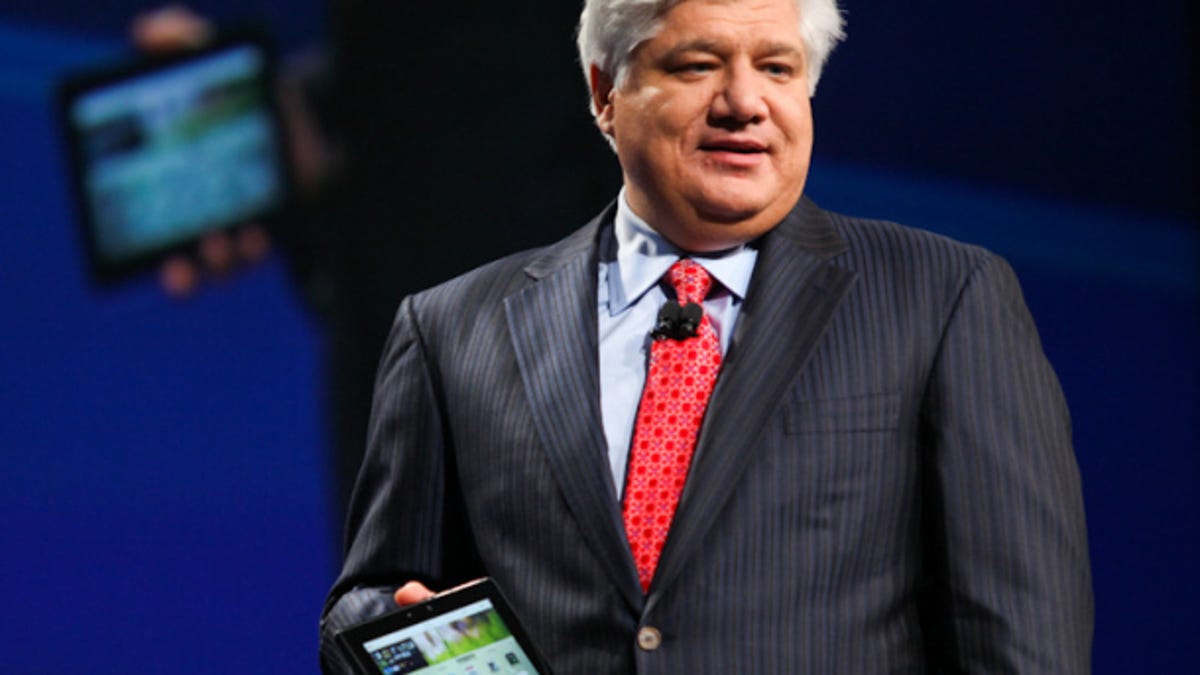Want a BlackBerry 10 phone? Don't hold your breath
Research in Motion said the first next-generation smartphone won't arrive until the latter part of the year.

Research In Motion is planning to make a lot of noise, but launch few products during the early months of next year.
The Canadian mobile device maker said its first phone running on its next-generation platform wouldn't appear until the latter half of 2012, citing the selection of a processor that wouldn't be available until the middle of next year. In its place: a lot of commercials and special offers.
"We ask for your patience and confidence," co-CEO Mike Lazaridis said during a conference call today.
Investor and consumer patience, however, is already running thin for a company that has suffered from multiple misfires in which product delays have become the norm, as opposed to the exception. Smartphones running on BlackBerry 10, previously known as BBX, were supposed to be RIM's saving grace, and was expected to debut much earlier next year. But another delay means a chance for competitors to widen their lead over the company.
Lazaridis said the timing was affected by the selection of a dual-core chip that offers integrated LTE capabilities that is more power-efficient. The chip will allow the company to offer a device with a better industrial design, and should help it garner support from the carriers, which increasingly consider LTE as a standard feature.
In the meantime, RIM doesn't intend to stay quiet. Co-CEO Jim Balsillie said the company plans to increase its promotional activity in the U.S. and around the world to invest in the BlackBerry brand, as well as special offers for its device. These moves are expected to begin "imminently."
"We're planning to take a comprehensive advertising and promotional program," Balsillie said.
RIM executives expressed disappointment with how BlackBerry 7 has been treated by the carriers, and feels it can do a better job of promoting the phones itself. It hopes that BlackBerry 7 will help fill the gap while customers wait for the next-generation products.
Still, RIM is only projecting unit shipments of 11 million to 12 million in the fiscal fourth quarter, compared with 14.1 million in the third quarter.
Lazaridis reiterated his commitment to the PlayBook tablet, adding that the product has sold well after the promotions took effect. He said the company has worked through its initial inventory and is replenishing supplies to retailers.
"While we preferred to have the initial launch be smoother, I still believe it's the most secure and advanced tablet in the market today," Lazaridis said.
The PlayBook is playing an increasingly important role because it serves as the only link to its next-generation platform. Any apps that are written for the tablet will work on the BlackBerry 10 phones, which the company believes is an incentive for developers to start working with BlackBerry 10. The company also plans to offer demo phones for developers to test their apps.
The delay is a bitter pill to swallow after the company reported further declines in profit and revenue in the third quarter.
To their credit, RIM's executives acknowledged the disappointment surrounding the company.
"We recognize shareholders may have felt we have fallen short," Balsillie said, adding that he remains confident that the transition will help secure its position in the mobile business.
Balsillie said he and Lazaridis would reduce their cash compensation to $1 a year, effective immediately. The two are the largest shareholders of the company.
Updated at 3 p.m. PT with additional background, details, and comments.

